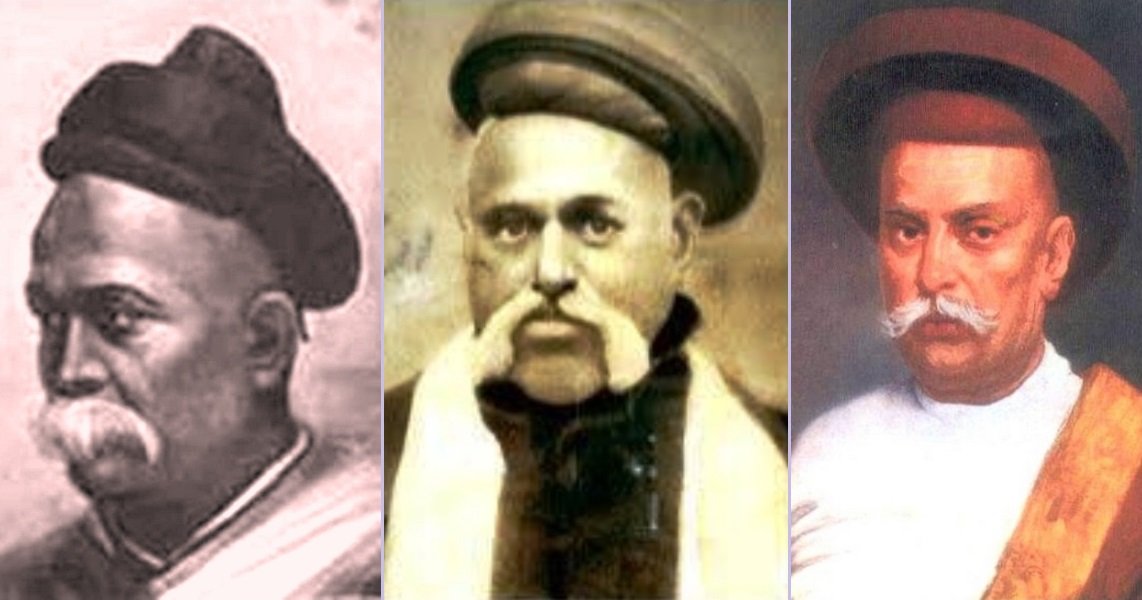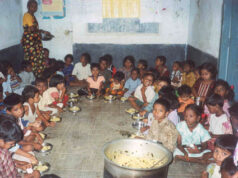The formative years of the modern, pan-Indian nationalism can be traced back to the latter half of the 19th century. The culmination of the British expansion into a centralized governance mechanism partly contributed to this pan-Indian political consciousness. Inspired by the induction of ideas of modernity in India, the newly emergent political associations in major provincial centers responded to this consolidation of colonial administration. These associations fashioned themselves as representatives of native opinion and made claims on behalf of the community. Prominent among them in the western province was the Poona Sarvajanik Sabha.
With a recent past of political gravity as the Maratha center of power that underpinned Poona, the local elites were infused with a strong nationalist sentiment that was inimical to the raj. Of course, as C A Bayly argued, the Marathas demonstrated a strong sense of territoriality which could be interpreted as an indigenous root of primordial patriotism. But, also influential were the ideas of European nationalists like Mazzini and Garibaldi. Moreover, the liberal ideas of self-rule, civil society, press freedom, and a responsible executive as well came to find adherents among the English-educated elites.
After a couple of short-lived experiments in associational politics, the Poona Sarvajanik Sabha was founded on 2nd April 1870. Prior to the coming of the Indian National Congress, the Sabha easily was among the leading native associations in India. The origin story of the Sabha has been a matter of historical debate. Scholars like Ravindra Kumar, R C Majumdar, and S R Tikekar have seen it as a revived form of the earlier Poona Association which was founded in 1867. The Association went defunct by the middle of 1869.
On the other hand, late historian S R Mehrotra traced its origin to the Parvati Temple fund controversy. Author N C Kelkar and historian Anil Seal regarded both the defunct Association and the temple fund controversy as the impetus for the formation of the Sabha. Based on the contemporary account in the 9 May 1871 issue of the Bombay-based Star of India, Mehrotra made a convincing case for the latter. The Sabha was meant to work as a mediating body between the state and people by airing the grievances of people and helping them make claims on the state.
The Sabha has been described as the first Indian association with a representative character which lent some credence to its claim of being a mediating body. The membership to the Sabha was contingent on the production of a mukhtiarnama (power of attorney) signed by at least fifty adults. What it essentially means is that every member of the Sabha could claim to represent and speak on behalf of these signatories on public matters. S R Mehrotra showed that by June 1871, the Sabha had 140 members serving as representatives of about 17,000 people. Moreover, the internal functioning of the Sabha also reflected its democratic character.
The Sabha’s constitution made the provision for an annual meeting of all the electors. The office bearers who were to be elected annually and could stand for re-election included the President, Vice-President, secretaries, and treasurers. A general committee and a managing committee formed the governing apparatus of the Sabha. The decision-making in the Sabha followed the democratic principle of majority voting. However, there also existed a provision for dissenting members to have their arguments annexed in the minutes.
The democratic functioning and representative base of membership apart, the Sabha was dominated by the wealthy and intellectual elites of the local community. As Mehrotra showed on the basis of the lists of members and office bearers, the Sabha was dominated by sardars, landholders, businessmen, retired government servants, lawyers, and teachers. Despite the heavy influence wielded by the Hindu brahmin elites, ‘the Sabha also had a fair number of Parsi, Moslem, and Christian members.’
The Sabha played a crucial role in creating a civic consciousness and public sphere in Poona and the nearby rural areas of Deccan. Moreover, despite the local character of the Sabha in initial years, it also made strides in fomenting a pan-Indian political community by making overtures to political associations in other provinces. In its demands, the Sabha was a moderate association jostling for concessions in terms of political representation and Indianisation of administrative services. Major issues that were of concern to the Sabha included relaxation in the age limit for and simultaneous conduct of the Indian Civil Services exam, state protection for nascent Indian industries against foreign competition, promotion of the swadeshi agenda, famine relief work, liberal political reform in native states, compulsory primary education, press freedom, fiscal accountability, the extension of the limited elective franchise in municipalities, and native Indian representation in the British parliament.
According to Mehrotra, under the able leadership of Mahadev Govind Ranade and Ganesh Vasudev Joshi, the Sabha emerged as the foremost political association in India with a progressive bent. The Quarterly Journal of the Sabha was launched in July 1878 to educate and shape public opinion on matters of social, economic and political interest. In line with the Indian liberal tendency to find an indigenous root of liberal political institutions, the Sabha began to organize arbitration courts in the Deccan for the private settlement of civil disputes. As was stated in Poona Observer, the Sabha here was emulating the ancient institution of the panchayat.
In the years of Deccan famines in 1872, 1876-78, and 1896-97, the Sabha sent its representatives to rural areas to collect accurate information which then were sent to the government demanding adequate famine relief measures. In the 1896-97 famine, the Sabha volunteers also made the peasantry aware of their rights under the Famine Relief Code. Despite the predominantly urban middle-class character of the Sabha, its work as a mediating body between the state and peasantry stemmed from the liberal conviction of the Sabha leaders who sought to operate in the domain of civil society. The Sabha’s mediating role though was essentially contingent upon the state acceptance of its legitimacy.
Hence, it shouldn’t come as a surprise that with the state derecognition of the Sabha as a representative body, it went moribund after 1897. Earlier in 1895, the extremist faction under Tilak had taken control over the Sabha. The liberals- Gopal Krishan Gokhale and Mahadev Govind Ranade – left the Sabha to form Deccan Sabha in 1896. During the famine of 1896-97, the extremist criticism of the Bombay government led the latter to pass a resolution on 17th March 1897 derecognising the Sabha as a representative body. The Anglo-Indian press was already hostile to the Sabha due to the threat posed by its representative character. Problems were also exacerbated by the death of Joshi earlier in July 1880 who was the dynamic force behind the Sabha. The rift between liberals and conservatives weakened the prospect of cooperation under the auspices of a single body. The coming of new associations like the Indian National Congress, Abhinav Bharat, Deccan Sabha, Satyashodhak Samaj, Dinabandhu Sarvajanik Sabha, and Servants of India Society in the western province made the older association riven with conflict even more irrelevant in public discourse. In the long run, though, the legacy of the Poona Sarvajanik Sabha lies in its pioneering effort at representative politics and a pan-Indian outlook that has contributed to the making of modern Indian democracy.
IndianLiberals.in is an online library of all Indian liberal writings, lectures and other materials in English and other Indian regional languages. The material that has been collected so far contains liberal commentary dating from the early 19th century till the present. The portal helps preserve an often unknown but very rich Indian liberal tradition and explain the relevance of the writings in today’s context.
Read more: SO Musings: What the Voter Should Know
Post Disclaimer
The opinions expressed in this essay are those of the authors. They do not purport to reflect the opinions or views of CCS.






